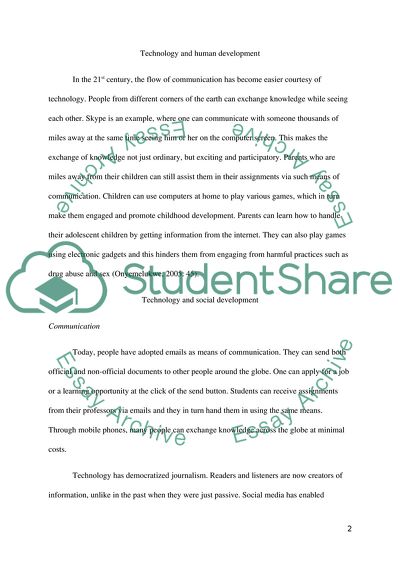Cite this document
(“Technology has Democratized Knowledge Essay Example | Topics and Well Written Essays - 1500 words”, n.d.)
Technology has Democratized Knowledge Essay Example | Topics and Well Written Essays - 1500 words. Retrieved from https://studentshare.org/technology/1606525-technology-has-democratized-knowledge-do-you-agree-or-disagree-with-this-statement-explain-with-examples-to-illustrate-your-answer
Technology has Democratized Knowledge Essay Example | Topics and Well Written Essays - 1500 words. Retrieved from https://studentshare.org/technology/1606525-technology-has-democratized-knowledge-do-you-agree-or-disagree-with-this-statement-explain-with-examples-to-illustrate-your-answer
(Technology Has Democratized Knowledge Essay Example | Topics and Well Written Essays - 1500 Words)
Technology Has Democratized Knowledge Essay Example | Topics and Well Written Essays - 1500 Words. https://studentshare.org/technology/1606525-technology-has-democratized-knowledge-do-you-agree-or-disagree-with-this-statement-explain-with-examples-to-illustrate-your-answer.
Technology Has Democratized Knowledge Essay Example | Topics and Well Written Essays - 1500 Words. https://studentshare.org/technology/1606525-technology-has-democratized-knowledge-do-you-agree-or-disagree-with-this-statement-explain-with-examples-to-illustrate-your-answer.
“Technology Has Democratized Knowledge Essay Example | Topics and Well Written Essays - 1500 Words”, n.d. https://studentshare.org/technology/1606525-technology-has-democratized-knowledge-do-you-agree-or-disagree-with-this-statement-explain-with-examples-to-illustrate-your-answer.


